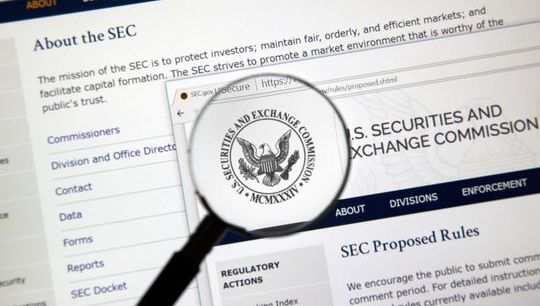Digital asset legislation is coming for Australia; will it bring investment with it?
By Daniel Knight; Simon Kiburg, K&L Gates
Published: 24 November 2025
Currently, the regulatory landscape for digital assets in Australia is relatively fragmented. This has hampered direct institutional investment into the asset class, causing asset managers to prefer synthetic instruments (such as crypto ETFs) in many cases.
On 25 September 2025, the Australian Treasury released draft legislation to bring certain digital assets and digital asset entities into the scope of Australia’s financial services laws.
The Treasury Laws Amendment (Regulating Digital Asset, and Tokenised Custody, Platforms) Bill 2025 (Bill) imposes licensing obligations on digital asset platforms (such as exchanges) and custodians, in an approach which is similar to the way in which custodial investment platforms (often referred to as investor-directed portfolio services) are regulated in Australia.
In this article, we explore the legislation and the potential impacts that its introduction could have for asset managers both locally and internationally, including the potential for it to facilitate greater direct access to crypto assets for institutional investors.
Current state of play
The Australian framework for regulating digital assets has, up until the introduction of the Bill, been relatively fragmented. The position from the Australian Securities and Investment Commission (ASIC) is outlined in Information Sheet 225 (which is also under review). According to ASIC, the existing financial services regime applies in determining whether a crypto-asset is a financial product or not.
For example, a digital asset, if it has the relevant features, may amount to a managed investment scheme or security. As such, the exercise of determining whether a particular token is a financial product is an issue that has been at the forefront of the digital asset space.
There have been a number of pieces of litigation in this space, where ASIC has prosecuted token issuers for issuing what it alleges to be financial products. The outcomes of these cases have been varied and have only provided limited clarity. The crypto industry in Australia more broadly has decried the use of an apparent regulation by enforcement approach as not being a fair or efficient method of clarifying these issues.
Proposed changes
Under the Bill, a number of new concepts are to be introduced into the Corporations Act 2001 (Cth). Two of the key concepts, and those that will be regulated, are Digital Asset Platforms (DAPs) and Tokenised Custody Platforms (TCPs).
Digital asset platforms
A DAP is a facility under which a person possesses one or more digital token on trust for or on behalf of another person. A digital token being a digital object over which one or more persons are capable of exercising control.
At a high level, cryptocurrency exchanges and digital asset custodians are likely to fall into the category of a DAP and the regulated entity will be the operator of the DAP.
Tokenised custody platforms
A TCP is a facility under which:
- The operator identifies one or more assets, and for these assets creates a digital token,
- Possession of a token confers a right to redeem or direct the delivery of the underlying asset
- The operator holds the underlying asset on trust for, or on behalf of, a person who possesses the digital token
An example of a TCP is an offering in which an underlying asset such as gold is effectively wrapped by the operator, and customers obtain the right to redeem or to direct the delivery of the gold by obtaining a token.
Financial services framework
These two facilities will be treated as financial products and issuers of them would be required to obtain an Australian Financial Services Licence (AFS Licence) subject to any potential exemptions which may be applicable.
In addition to issuers of DAPs and TCPs being required to be licensed, the existing regulatory regime will apply. For example, third parties who provide advice to customers around the use of DAPs and TCPs will be required to be adequately licensed. Crucially, however, these changes will not change the treatment of underlying digital assets. As such, digital assets which are not financial products (which is presumed to include conventional digital currencies such as bitcoin and Ethereum) will not be directly regulated under the proposals.
This will also mean that persons providing advice or recommendations about bitcoin or Ethereum, for example, will not be subject to licensing. The government has acknowledged that this is a shortcoming and one which they intend to address in future.
Exemptions
There are a number of exemptions contained in the Bill, these include:
- relief from the requirement to hold an AFSL for a DAP if the total market value of the transactions across platforms issued by its group does not exceed US$10 million across a rolling 12-month period, each client’s total holdings do not exceed US$5,000 and a number of other requirements are met.
- relief from the requirement to hold an AFSL where a person arranges for a client to use a DAP or TCP in the course of an otherwise primarily non-financial services business.
What does this mean for asset managers?
While the Bill does not look to bring digital assets into the financial services regulatory framework directly, it will hopefully act to provide more comfort to asset allocators around their engagements with DAP and TCP operators.
By providing a regulated framework for exchanges, asset managers will have better access to invest directly in cryptocurrencies in Australia, with greater certainty and comfort around the exchanges and custody providers. In particular, when investing directly, asset managers will have increased comfort that they are dealing with an exchange which is subject to ASIC regulatory oversight under a familiar regulatory framework.
The Bill provides ASIC with the ability to make standards that deal with the conduct of licensees in relation to possessing and safeguarding the underlying assets of platforms. This would be another piece of security which should provide asset managers with comfort around engaging with digital assets in Australia. In a retail fund context, this too will help responsible entities demonstrate compliance with their obligations in connection with holding and safeguarding fund assets in light of ASIC’s detailed expectations as set out in Info Sheet 225.
Separately, we consider that there is scope for asset managers to look into the TCP model as a clearer pathway for issuing tokenised funds in Australia.
More broadly, as seen in other jurisdictions, the creation of new bespoke legislation is seen as having a positive impact for investors (both institutional and retail), as well as for industry participants (by encouraging further investment in the area). The details of the Bill are still being discussed, with the Government inviting feedback on the draft legislation before it is passed likely early in 2026.
We will continue to monitor this process and report on any further developments.








